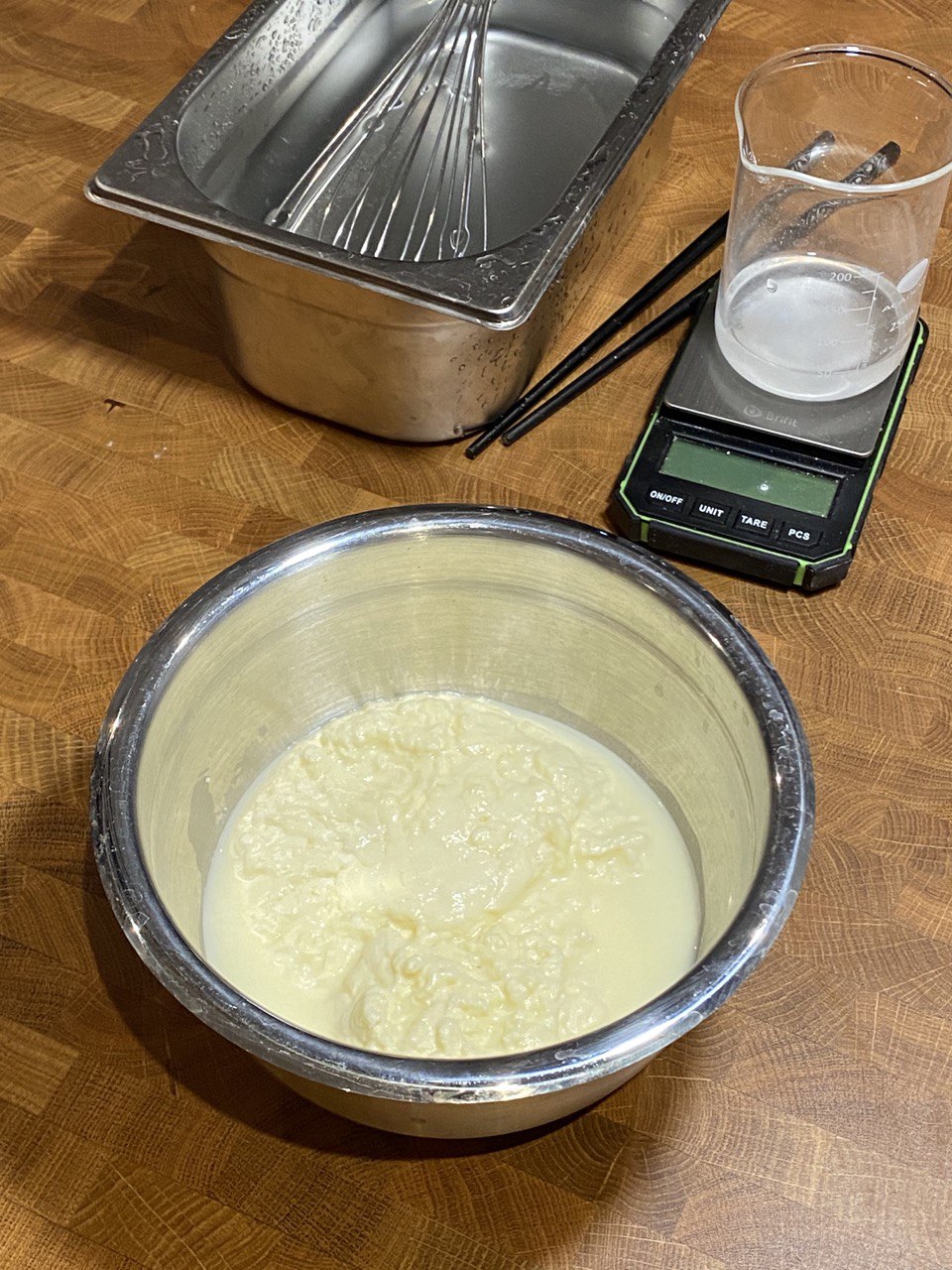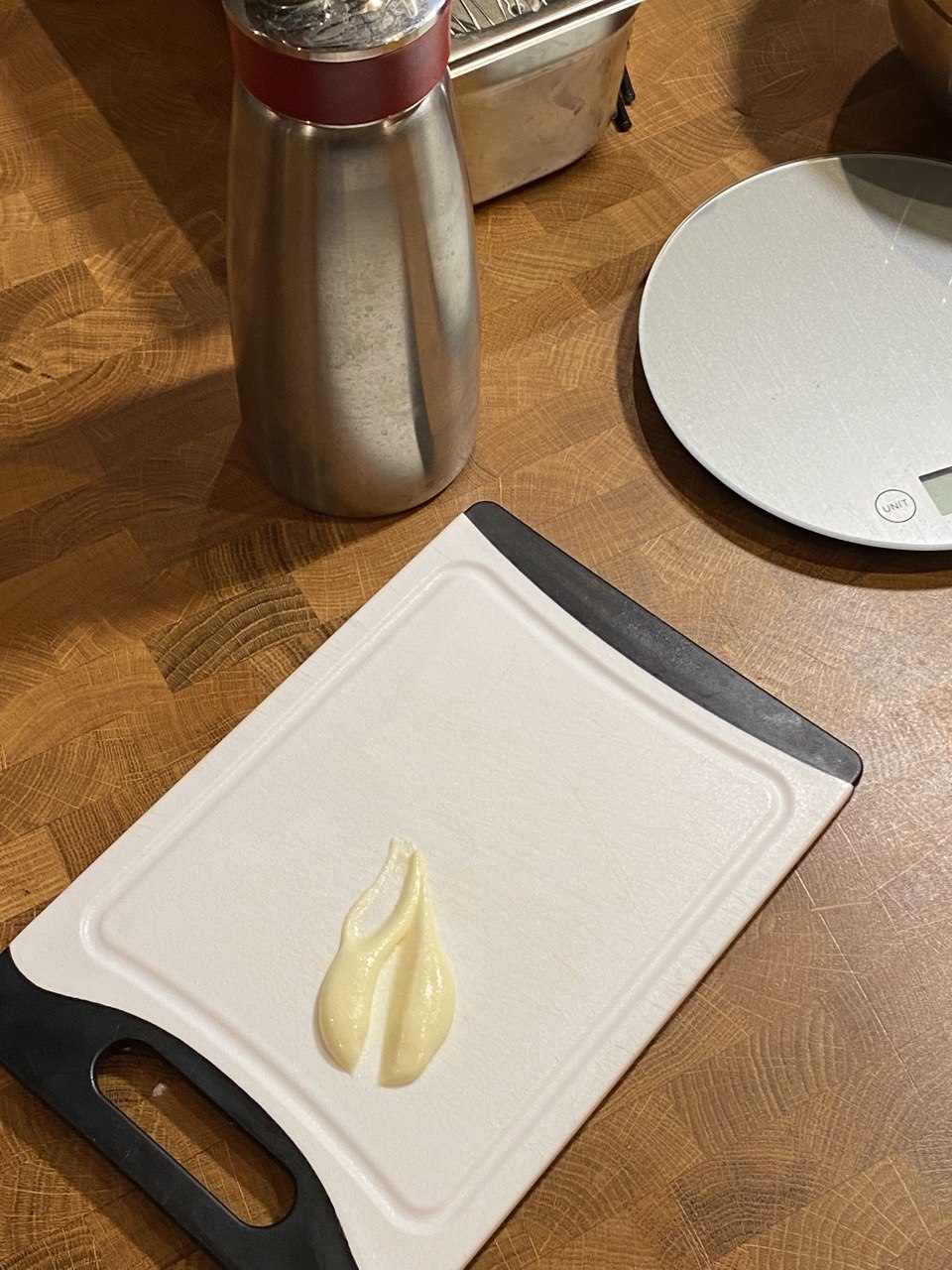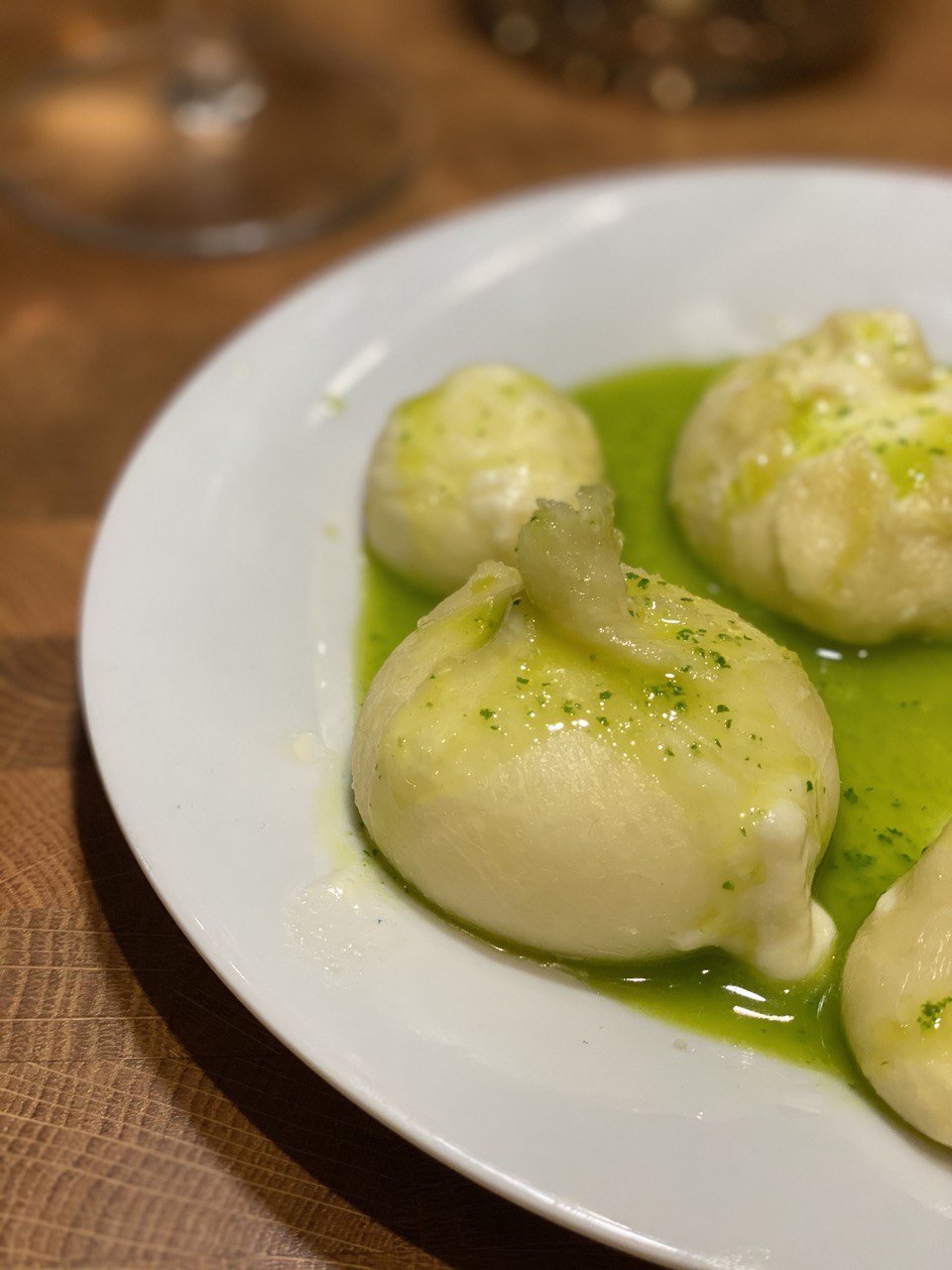Tuesday Triage #35
- TUESDAY TRIAGE #35 by Vadim Drobinin
- On ups and downs
- Things I enjoyed reading
- 1. The Joy of Fuck-You Money by @MeadowsRichard
- 2. Routing the technical interview by @larsr_h
- 3. Ketchup Is Not Just a Condiment: It Is Also a Non-Newtonian Fluid by H. Joachim Schlichting
- 4. The Waste of Daylight
- 5. The Part Time Creator Manifesto by @swyx
- 6. Final thoughts by Neil Levy
- 7. Memory layout in Swift by @tiborbodecs
- 8. The SPACE of Developer Productivity by Nicole Forsgren et al
- 9. How Trader Joe’s $2 wine became a best-seller by @zzcrockett
- 10. When Should I Interrupt Someone? by @ianmiell
- Things I didn't know last Tuesday
- 1. Peking Duck Exemption
- 2. Michael Fagan
- 3. The last lost tourist
- 4. Tangzhong
- 5. World's littlest skyscraper
- 6. Corned Beef and Cabbage Day
- 7. Michael Marks
- 8. Water activity
- 9. Victorian bath house
- 10. Alewives
- Book of the week
- Thank you and see you in a week!
TUESDAY TRIAGE #35
by Vadim Drobinin ¶
Your weekly crème de la crème of the Internet is here!
16.03.2021 (read in browser)
On ups and downs ¶
I made mozzarella from scratch quite a few times before.
It's a simple task, given you have fresh milk and rennet, and it is very rewarding.
Also it is lots of fun.
However, this week I tried to make burrata.
That's essentially mozzarella balls filled with cream, so what could be easier, eh?
We made mozzarella curds, which is the simple part.

Usually at that stage you'd temper them with hot water, and then stretch, salt, and form balls, but this time I had to fill them in with some cream. Cream doesn't hold shape though, so the trick is to blend it with some mozzarella curds and xanthan gum. Filling a ball with that substance is rather hard anyway, so we can treat burrata as tiny balloons and instead fill them with an espuma gun and NO2:

To simplify the filling, mozzarella curds are slowly tempered in a sous-vide riff on bain-marie, stretched into discs, wrapped around the nozzle of the espuma gun and carefully filled with the cream, and then tied.
Suffice to say, I have failed miserably and declare that recipe to be one of the hardest I ever cooked. I even have to whip up some basil oil to cover them up and make them look less ridiculous:

Don't take me wrong, it was still tasty albeit a tad different from a store-bought burrata, but I can't come to terms with the fact that out of 20 balls I have filled in, only four were good enough to hold shape, and none were even enough to float in brine.
We made some sausage pizza in a wood oven, so went well anyway, but I will be trying again anyway.

Thank you for listening to my rant, I am still mildly traumatised by the expirience. At least this Martinez, garnished with a lemon blossom from our lemon tree looks as good as it tastes:

Things I enjoyed reading ¶
1. The Joy of Fuck-You Money by @MeadowsRichard ¶
A motivational discussion around money and their meaning in life. A spoiler: being financially independent is different from being confident in the future. The latter is way easier to achieve, and yet it gives one of the best powers, which is freedom of choice.
Fuck-you money means you can walk away from a shitty situation. You can fire an annoying client. You can turn down offers that conflict with your values, or are just plain boring. You can call out any shady behavior in your company or industry, instead of being held hostage by a comfortable salary.
2. Routing the technical interview by @larsr_h ¶
If that was a part of a book, I would buy it without further ado.
“See? It works beautifully. And it scales very well.”
She snickered wryly. The irony of a web-scale FizzBuzz cluster was not lost on her interviewer.
“I’ll admit that the code doesn’t handle errors very well right now. Do you want me to keep going? I could also use Helm templates to remove some of the duplication.”
His mind had switched to autopilot.
“No, that won’t be necessary; I think I’ve seen enough. Thanks for coming in today. We’ll be in touch.”
However that's a story about interviews and interviewers, coding tasks, and managing expectations, and I must say, a great one.
3. Ketchup Is Not Just a Condiment: It Is Also a Non-Newtonian Fluid by H. Joachim Schlichting ¶
For those wondering why sauce is ketchup is sometimes so hard to squeeze out, here is a great scientific explanation:
Polymers are microscopic complex molecules composed of long chains of atoms, which become entangled and release energy into their surroundings. In this state, the polymer is quite pulpy and viscous. Applying sufficiently large shear force, however, provides the energy needed to stretch the polymer molecules out and align them lengthwise. The chains now easily slide past one another, and macroscopically, the result is reduced viscosity.
Also makes me less worried about white t-shirts whenever I eat a hot-dog.
4. The Waste of Daylight ¶
A fascinating story of daylight invention, which went wrong so many times the article struggles to cover them all:
Willet’s scheme called for a clock change of 20 minutes on each of four Sundays in a row, in order to minimise the disruption to biological clocks, of people or cows, at the expense of remembering four separate clock changes for a total difference between summer and winter time of 80 minutes.
5. The Part Time Creator Manifesto by @swyx ¶
A nice way to put into words one's desire to build things and yet maintain the comfortable routine:
Talk is cheap. Your actions are the real vote for what you want to be. If you say you want to be a Part Time Creator but spend almost 40 hours a week watching Youtube/Netflix, then you're really a Full Time Consumer. Make the time.
6. Final thoughts by Neil Levy ¶
An essay on how the deathbed perspective affects thoughts and regrets about life.
Most plans and projects have a significance only for the person who’s confident she’ll live for some time to come. Saving money often makes sense only because there’ll be a later, at which I might need the money. Learning French might make sense only in view of the possibility of a visit to Paris.
An unexpected takeaway: people tend to wish for very common (and "promoted" by movies and books) things, whether it's living happier or working less hard.
7. Memory layout in Swift by @tiborbodecs ¶
A very easy-to-read overview of the memory layout in Swift. I always had an intuition of how it works, but being able to get my ducks in a row is even better.
What the heck happened here? Why did the size increase? Size is tricky, because if the padding comes in between the stored variables, then it'll increase the overall size of our type. You can't start with 1 byte then put 8 more bytes next to it, because you'd misalign the integer type, so you need 1 byte, then 7 bytes of padding and finally the 8 bypes to store the integer value.
8. The SPACE of Developer Productivity by Nicole Forsgren et al ¶
A fresh attempt at inventing a framework for developers' productivity, this time with some new ideas of measuring and managing one's performance and happiness.
A developer who optimizes only for their own personal productivity may hurt the productivity of the team. More team-focused activities such as code reviews, on-call rotations, and developing and managing engineering systems help maintain the quality of the code base and the product/service.
9. How Trader Joe’s $2 wine became a best-seller by @zzcrockett ¶
This is a fascinating read on the journey to bring to the market the cheapest wine possible and yet make it very popular.
Through a legal loophole, he could say his wines were “Cellared and Bottled in Napa” if the brand was founded prior to 1986. So, he developed a strategy of buying out distressed wineries with distinguished-sounding names — Napa Ridge, Napa Creek, Domaine Napa — and using them to sell his stock of less-desirable Central Valley wines.
Like the stock market, but this time it was about "shortening" wines and wineries.
10. When Should I Interrupt Someone? by @ianmiell ¶
I do interupt people often, and not too proud of it (albeit still keen to continue), but fitting that desire into an equation to rationalise the interuption is pretty much the next level:
If you’re in the business of knowledge work, every time you interrupt someone you reduce their efficiency, and cost your business money.
Bosses are notorious for being cavalier with their inferiors’ time, but there’s often a good justification for this: their time is worth more to the business than yours.
So I came up with a formula for this [...]
Things I didn't know last Tuesday ¶
1. Peking Duck Exemption ¶
Cooking Peking ducks includes certain steps deemed unsafe by anyway familiar with the temperature danger zone, and yet somehow so many places thrive and keep hanging raw ducks at a room temperature for hours and days.
How come? A great question!
In the past they used to just pay fines for breaking the law, but eventually more and more states came up with an exampltion from food safety guidelines for the Peking Duck only:
On July 6, 1982, Gov. Jerry Brown signed the bill into law exempting Chinese-style roast duck from time and temperature regulations in the retail food code for up to four hours after the duck is prepared. It also exempts raw duck from the prescribed temperature measures for up to two hours if the duck is subsequently cooked at or above 350 degrees Fahrenheit for at least 60 minutes.
2. Michael Fagan ¶
The Queen once had to deal with a dude who wandered into her bedroom at 07:15 am.
The Queen woke when he disturbed a curtain, and initial reports said Fagan sat on the edge of her bed. However, in a 2012 interview, he said she left the room immediately to seek security.
All of that because the police thought their motion alarms were faulty.
3. The last lost tourist ¶
In 1977 a German brewery worker left a plane during a refuel stop and spent three days in a small American city thinking that he is in San Francisco.
At one point Kreuz was reassured by the sight of two Chinese restaurants in the town, something he knew was in San Francisco from the movies. The rusted green bridge that links Bangor to neighboring Brewer was clearly not the Golden Gate, but Kreuz carried on regardless. After much wandering, Kreuz decided he must be in a Bay Area suburb, so he hailed a taxi and asked the driver to take him to downtown San Francisco.
Must have been such a disappointment to find out that the real San Franscisco is not as clean.
4. Tangzhong ¶
Rye bread is usually dense and firm, so there is some magic to turn it into a fluffy sandwich one.
This Asian technique — which has origins in Japan's yukone (or yudane) and was popularized across Asia by Taiwanese cookbook author Yvonne Chen — cooks a small percentage of the flour and liquid (water or milk) in a yeast recipe very briefly before combining the resulting thick slurry with the remaining ingredients.
So think of it as a way to pre-gelatinize starches in the flour, so they will absorb twice more water than usual.
5. World's littlest skyscraper ¶
Such a cutie.
Investors brought a lawsuit against McMahon over the size of the building, but to their dismay, the real estate and construction deal was declared legally binding by a local judge. They did recover a small portion of their investment from the elevator company, which refused to honor the contract after learning how small the building was.
All thanks to a contract stating its height as 480" (inches) instead of 480' (feet).
6. Corned Beef and Cabbage Day ¶
I learnt about one of the most terrible misconseptions ever.

Folks in the States eat corned beef and cabbage on the St. Patrics day, thinking that this is a traditional Irish dish.
I sad to break it but it is not:
In the 18th century, when large numbers of Irish immigrants came to the U.S., they brought with them the idea of beef as a luxury. So when they found salted beef brisket was cheap in the States, they were quick to replace their traditional “Irish bacon.”
Next time go for some white pudding instead.
7. Michael Marks ¶
The founder of Marks & Spencer was born in the Russian Empire (and being from a Polish ancestry was actually called Michał), came to the UK in his 20s and started the business in Leeds.
The venture was a success and enabled Marks to raise enough capital to establish a stall in Leeds' open market. At his stall, he used the slogan "Don't Ask the Price – it's a Penny".
He got the citizenship only 15 years later. Such a journey!
8. Water activity ¶
There is a way to model how possible is food contamination with bacterias:
Water activity is the partial vapor pressure of water in a solution divided by the standard state partial vapor pressure of water.
So if something has high water activity (e.g bagel's is 0.92, or bacon's is 0.96) it will be more prone to getting spoiled, but things with lower water activity don't require a fridge to stay fine unless exposed to a very humid air.
Some examples: honey (~ 0.6), peanut butter (~ 0.35) or soy sauce (0.80). Don't keep them in the fridge.
9. Victorian bath house ¶
There is a beautiful piece of architecture right in the centre of London:

It has some nice history:
The baths were open from 7 a.m. to 9 p.m., and a ‘plain hot-air bath, with shower’ cost 3s.6d and the ‘complete process’ cost 4 shillings. Other services available included perfumed vapour, Russian vapour, Vichy, and sulphur vapour baths. There were scented showers, and ascending, descending and spinal douches.
But these days it's even better as there is a cocktail bar inside.
10. Alewives ¶
Women used to make beer in cauldrons at food markets but were eventually accused of witchcraft by competitors:
In the 1500s some towns, such as Chester, England, actually made it illegal for most women to sell beer, worried that young alewives would grow up into old spinsters.

Book of the week ¶
I promised Sasha that we won't be ordering fresh fish until we finish the everything we already froze beforehand.
Not because it might get bad, but mostly due to storage concerns.
However I was reading The Whole Fish Cookbook by Josh Niland and now constantly fight the urge to buy a kilo or ten of various fish, take some weeks off, and spend them by cooking everything from there, one by one.
Hear me out: this book is a piece of art.
I would buy it just for the middle diagram with filleting techniques.
Or for that quote:
I don’t understand how the 40–45 per cent (or, more to the point, the 55–60 per cent waste) that chefs are taught to expect a round fish to yield can be acceptable globally.
Saint Peter is a fish restaurant in Sydney, Australia that seats thirty-four people in one sitting. In a working week we will purchase in excess of 150 kg of fish, that’s approx 25 kg fish a day. The average price for round fish in Sydney including the premium fish we buy is $20/kg. If we were to apply the industry standard yield expectations of 40–45 per cent then, at $500 a day, that’s a total loss of $300 and a yield of $200. Now I understand that bones are used for stock and some restaurants will be grilling the fish’s collar meat over charcoal but this only represents a small percentage of the ‘loss’.
Beware though that after you open this book you will have problems with the majority of other cookbooks out there, as they won't look cool anymore.
Thank you and see you in a week! ¶
If you have any questions, or want to suggest a link for the next newsletter, please drop me a message on Twitter or reply to this email.
Cheers! 🍸